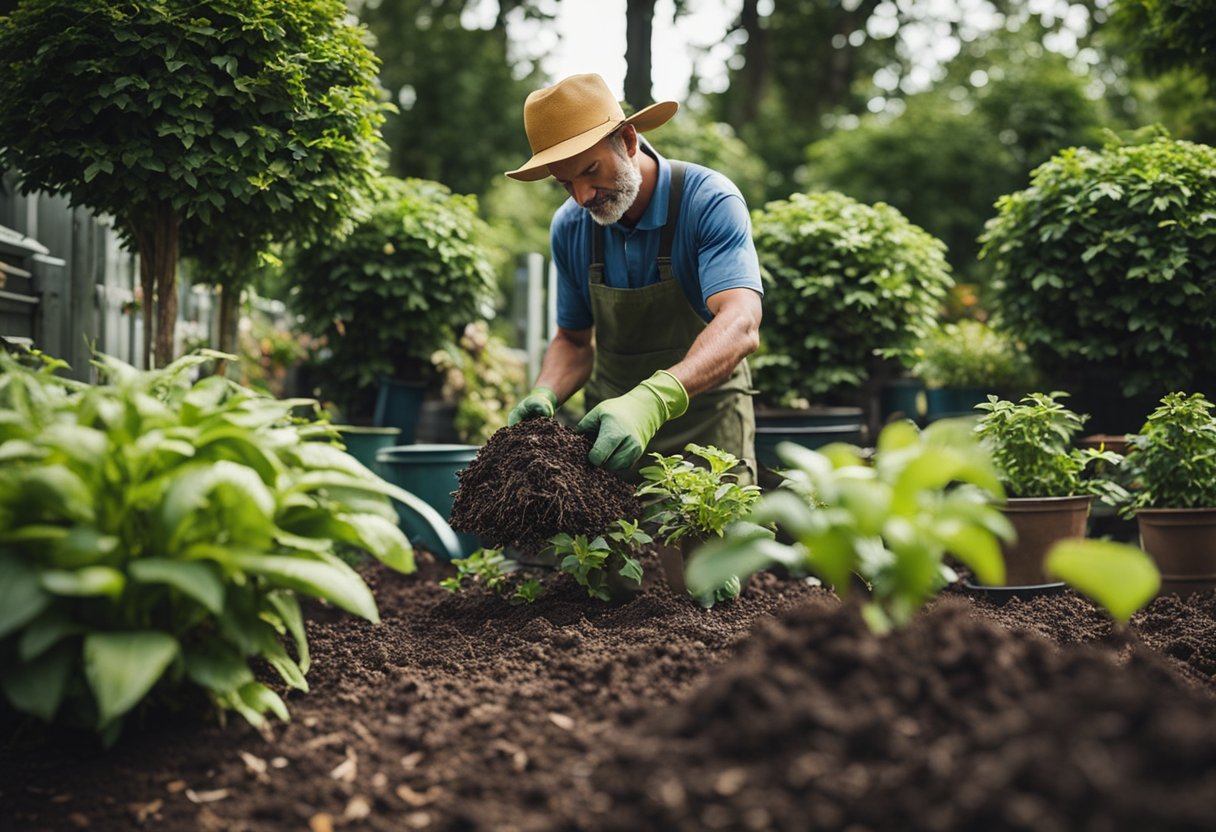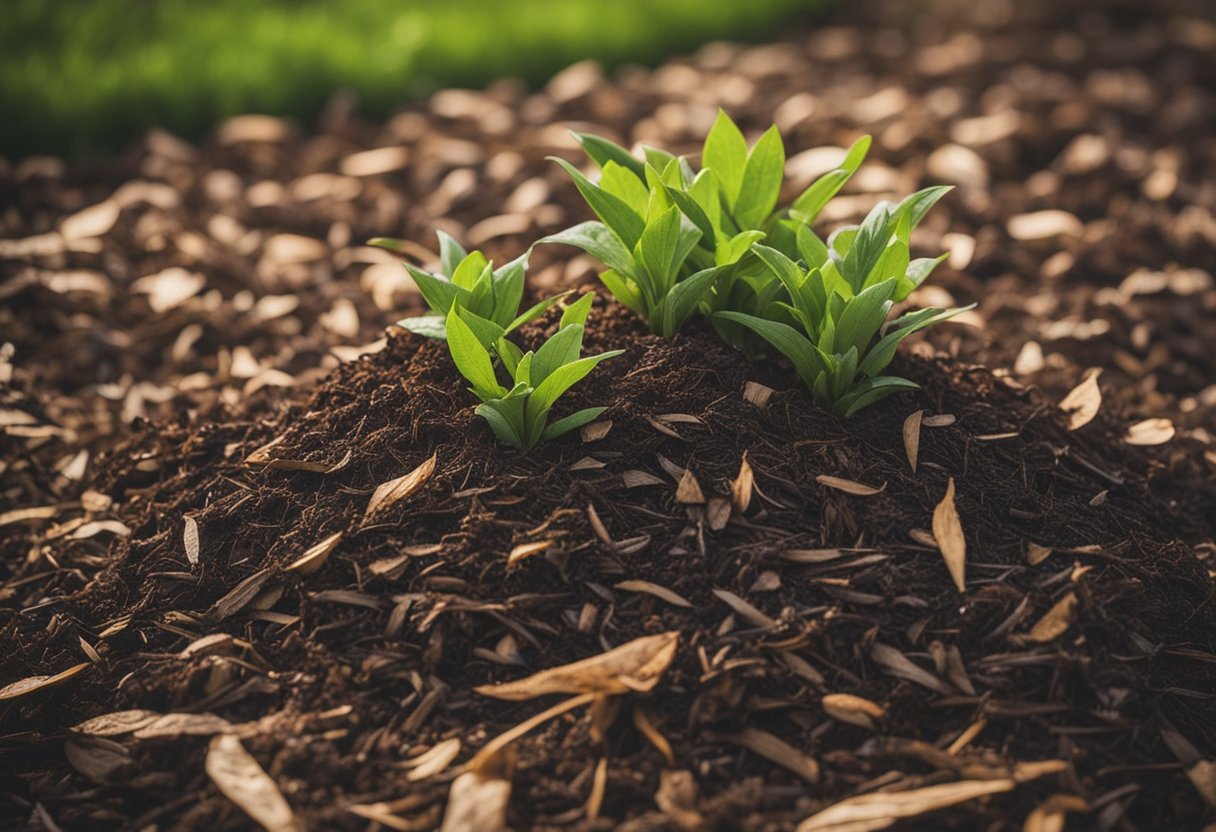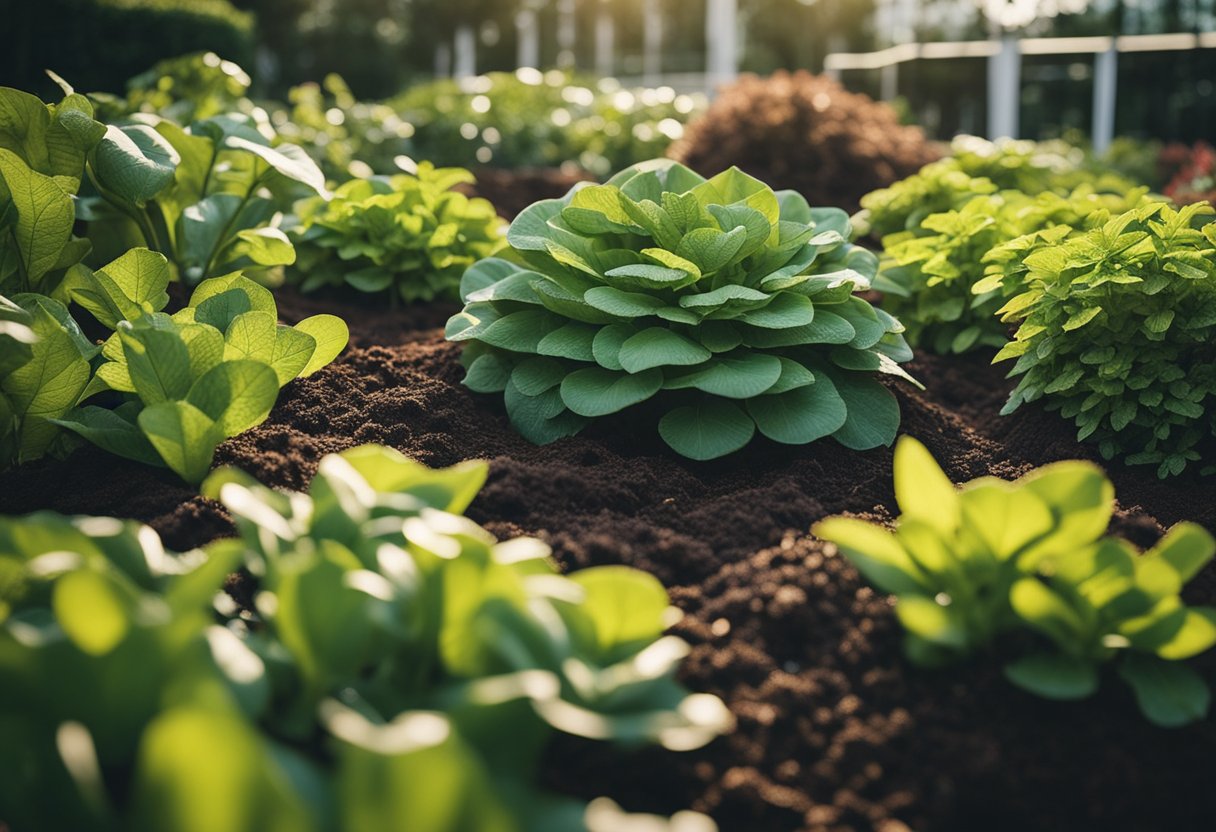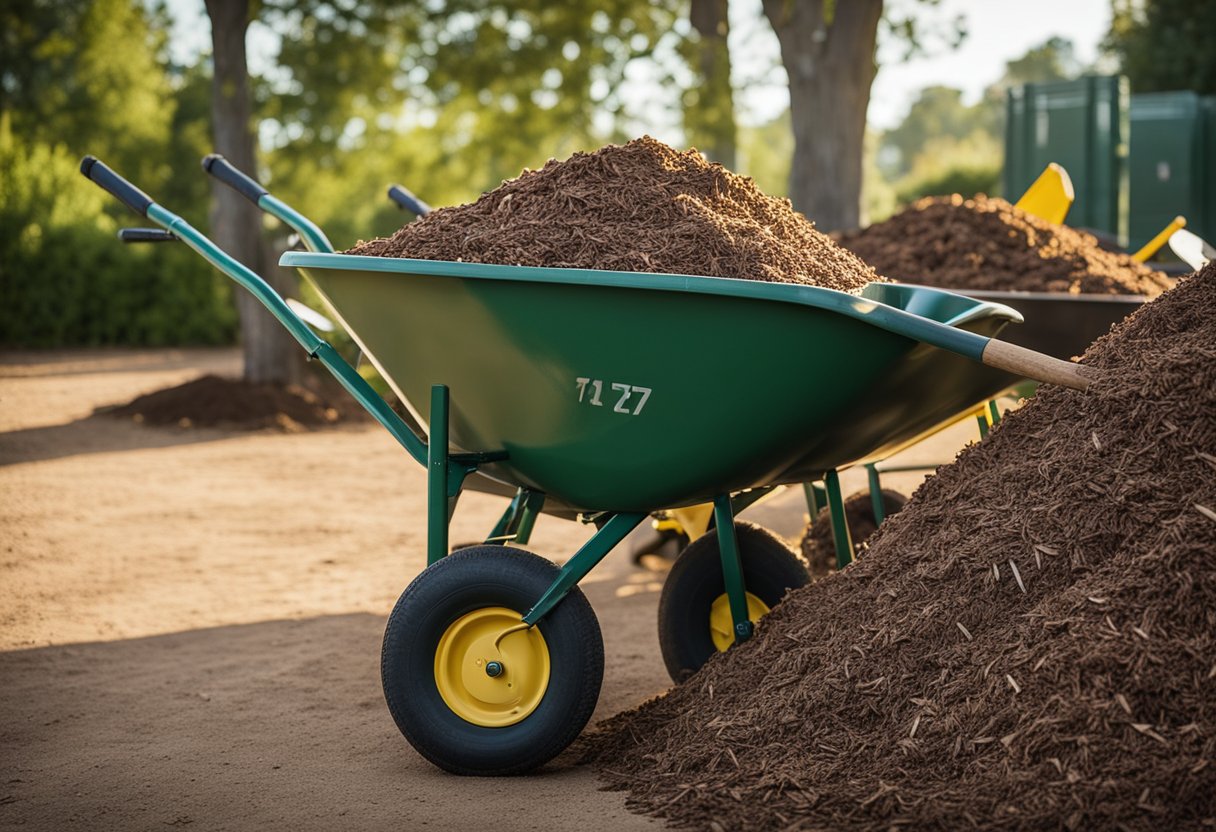Mulch serves many purposes in your garden, including moisture retention, weed prevention, and temperature regulation. Having extra mulch on hand can be a blessing in disguise, as it opens up opportunities to enhance various aspects of your garden. From innovative landscaping ideas to homemade compost, the possibilities are endless.
To ensure your extra mulch doesn’t go to waste, read on to discover some great ideas and tips on making the most of your extra mulch.
Mulch Benefits
For Your Garden and Plants
Mulch has some incredible benefits for your garden and plants. First, it helps retain moisture in the soil, which is essential for keeping your plants healthy. When you spread a layer of mulch around your plants, you’re creating a blanket that helps trap moisture and reduces evaporation, meaning you’ll spend less time watering. It also maintains a more consistent soil temperature, protecting your plants from extreme temperature fluctuations.
Another advantage of using mulch is that it provides a visually appealing and polished look for your garden beds. It’s available in different colors, so you can choose the one that best complements your garden design.
For Your Soil
Mulch is not only great for your plants but also for your soil. It works as a soil amendment by gradually breaking down and decomposing over time and turning into organic matter that feeds the soil. Here’s how mulch benefits the soil:
- Increases soil fertility: As mulch decomposes, it adds essential nutrients and minerals back into the soil, which your plants will use to grow.
- Improves soil structure: Organic mulch improves the structure of your soil by combining it with the existing matter. This makes it easier for your plant’s roots to spread and grow.
- Enhances drainage: Well-decomposed mulch improves water penetration and drainage in your soil, allowing plants to access more water and nutrients.
For Weed Control
Another significant benefit of using mulch is that it helps control weeds in your garden. Here’s what mulch does to control weeds:
- Biodegradable weed barrier: When you spread a thick layer of mulch on your garden beds, it forms a barrier that makes it difficult for weed seeds to reach the soil. As a result, fewer weeds will sprout, and your garden maintenance efforts will be reduced.
- Blocking sunlight: Mulch blocks sunlight that weeds need to grow, effectively suppressing their germination and growth. This also means less competition for nutrients and water for your plants.
- Make weed removal easier: In the case that some weeds do manage to break through the mulch, they’ll usually be easier to pull out since the mulch helps keep the soil around weed roots moist and loose.
How to Use Extra Mulch
In Landscaping Projects
Extra mulch can do wonders in your landscaping projects, giving them a polished and well-maintained appearance while keeping weeds at bay. You can repurpose your excess mulch by using it as a ground cover around trees, shrubs, and flower beds to help control moisture loss in the soil. Applying a 2-3 inch layer of mulch around these areas will not only keep your garden looking tidy but also ensure that your plants stay healthy and vigorous.
Additionally, incorporating mulch in raised-bed gardens and vegetable beds can help improve your soil quality. Peat moss, bark, and leaves work well as soil amendments, allowing roots to easily penetrate and steer clear of compacted soils. In your flower beds, give those new plants the best possible start by mixing mulch into the soil when establishing your vibrant blooms.
For Creating Pathways
Sprucing up pathways in your front yard or garden is another excellent use of extra mulch. To create a visually appealing and functional pathway, start by laying down a weed-suppressing tarp, then spread the mulch layer about 2-3 inches thick. You can cover the mulch with stone, wood chips, or other decorative materials for a more attractive appearance. Using mulch for pathways is an economical and eco-friendly alternative to paving stones and gravel.
Here are some different types of mulch for creating pathways:
- Bark: Provides a natural look and breaks down slowly, making it long-lasting.
- Leaves: A cost-effective and eco-friendly option that decomposes quickly and needs replenishing more frequently.
- Stone: Offers a beautiful and more permanent solution, but can be difficult to walk on.
For Composting
If you have even more mulch, turning it into compost is an efficient and sustainable solution. By adding mulch to your compost pile, you can improve the quality of your homegrown fertilizer and create a nutrient-rich amendment for your lawn and gardens. To do this, simply layer the mulch with your kitchen waste, lawn clippings, and other organic materials, and let nature work its magic.
While storing your extra mulch, consider keeping it covered or in a storage container to prevent it from becoming too wet or attracting pests. With these practical uses in mind, you can turn your excess mulch into a valuable asset for improving your landscaping projects, pathways, and composting activities.
Effective Storage and Repurposing of Extra Mulch
Storing Extra Mulch
When it comes to storage, keeping your mulch dry and mold-free is key. If you have a large amount of bulk mulch, consider spreading it out on tarps or sheets of plastic near your driveway or in another easy-to-access location. Cover the pile with a tarp to protect it from the elements. If you have a wheelbarrow or plastic buckets available, these can also be utilized for storage.
To prevent the growth of mold and mycelia, make sure the storage area is well-ventilated. If possible, situate the mulch in a sunny spot to help keep it dry.
For smaller amounts of mulch, you can use bags for storage. Double-bagging can reduce the chances of mold growth and make transport easier. Additionally, using colored bags can add a touch of aesthetic appeal to your stored mulch.
Repurposing Extra Mulch
If you’d like to both repurpose your extra mulch and improve the aesthetics of your property, consider the following ideas:
- Mailbox area – Surround your mailbox with a layer of mulch for a neat, tidy appearance.
- Rake old mulch – Freshen up your existing mulch beds by raking in the new mulch with the old. This helps redistribute the particles and gives a fresh look.
- Insulate plants – In colder weather conditions, mulch can help insulate plants, protecting their root systems from freezing temperatures. Spread a layer of mulch around the base of your plants as needed.
- Share with neighbors – Offer your extra mulch to friends and neighbors who may have a gardening or landscaping project in progress.
Remember, different types of mulch have varying functionalities. For example, shredded leaves decompose quickly and enrich the soil, while bark mulch is better suited for decorative purposes.
Lastly, old mulch can still have a purpose. As organic mulch breaks down, it will decompose and contribute to healthy soil. However, be aware that wood mulch can attract fungal spores if not properly cared for. To keep mold at bay, routinely turn over the mulch and ensure proper air circulation.
By following these storage and repurposing guidelines, you’ll make the most of your extra mulch, keeping your landscape looking its best and doing your part for the environment.
Frequently Asked Questions
Does unused mulch expire or go bad?
Unused mulch generally does not expire or go bad, but its quality may deteriorate over time, especially if it’s exposed to excessive moisture or sunlight. To ensure the mulch remains effective, store it in a dry, well-ventilated area and use it within a year of purchase.
Is it safe to store bags of mulch in a garage?
Storing bags of mulch in a garage is generally safe as long as the area is dry and well-ventilated. However, be cautious if the mulch is made from cocoa shells, as it can be toxic to pets. In such cases, store the mulch in a secured location where pets can’t access it.
What precautions should I take while storing mulch?
When storing mulch, take the following precautions:
- Store in a dry, well-ventilated area to prevent mold growth.
- Keep the mulch away from direct sunlight to avoid degradation.
- Ensure the storage area is free of pests and rodents.
- Monitor the moisture level to avoid mulch from becoming overly damp or dry.




